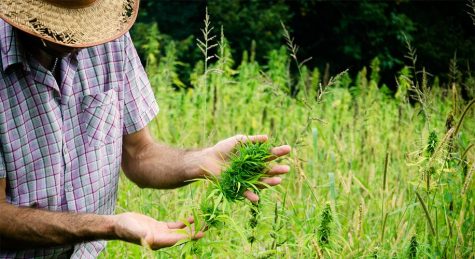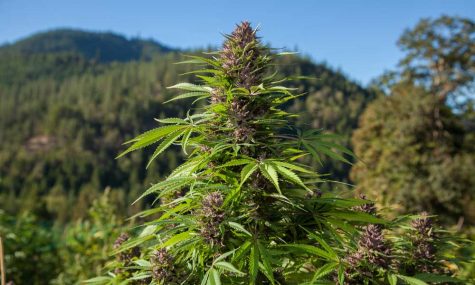Report: Ethiopia’s cannabis market could be worth $10 billion
New Frontier Data’s team of analysts say that the East African country’s textile and garment industries could be run much more efficiently with hemp, as opposed to cotton
Washington-based cannabis industry analytics company New Frontier Data has published a report that spotlights the earning potential of Ethiopia’s cannabis market. Titled “the African Regional Hemp & Cannabis Report 2019,” this interesting insight into the East African country’s cannabis market reveals a possible market value of $9.8 billion. Ethiopia lags just behind Nigeria’s cannabis industry, which is valued at $15.3 billion.
By studying cannabis consumption rates and volume, market analysts were able to carefully assess Ethiopia’s cannabis market and its value on a worldwide scale. Covered in the report are 13 African nations which, according to the analysts, “encompasses more than 565.4 million people, and of which, nearly 42.8 million are estimated to use cannabis at least annually.”
The global recreational and medical cannabis industries have a combined value of $344.4 billion. Africa’s cannabis industry will swallow $37.7 billion of global market value. This is not overly surprising, considering the fact that cannabis consumption in Africa rests at 11.4 percent and the global consumption rate is just six percent.
Cannabis industry analysts say that the confusion between hemp and cannabis must be cleared up
 Similar in appearance and both members of the Cannabaceae plant family, cannabis and industrial hemp are often mistaken for one another.
Similar in appearance and both members of the Cannabaceae plant family, cannabis and industrial hemp are often mistaken for one another.
However, the plants are quite different. Cannabis can be cultivated to produce heaps of the psychoactive chemical THC (tetrahydrocannabinol). Hemp, on the other hand, usually contains no more than 0.3 percent of the mind-altering ingredient.
“The continent’s growth presents opportunities for both medical cannabis and industrial hemp (a strain of the Cannabis sativa plant species that is grown specifically for industrial use). Hemp is a source of fiber and oilseed being grown in more than 30 nations today,” reads an excerpt from the report.
Cannabis study suggests Ethiopia could replace cotton plantations with hemp for textile creation

The legalization of cannabis and industrial hemp could have a magnanimous effect on Ethiopia’s economy. New Frontier’s report suggests that Ethiopia’s weed consumers could be forking out $9.8 million on cannabis products if the plant is legalized.
Aside from the revenue that the country could pull in from medical and/or recreational retail sales, money could also be harvested in the textile sector.
Industrial hemp boasts numerous qualities that make it a suitable textile for the creation of products such as biodegradable plastic, paper, fuel, clothing, and rope. Cotton plantations could eventually be replaced with hemp plantations as part of the National Cotton Development Strategy, say market analysts.
“The textile and garment industries are rapidly growing sectors in Ethiopia’s economy, but a common bottleneck in the supply chain has been its cotton supply, as Ethiopia currently does not cultivate enough cotton to supply its textile manufacturers, necessitating cotton importation,” reads the report. “The government has launched the National Cotton Development Strategy with the aim of becoming Africa’s top cotton producer by the 2030s in order to supply the garment and textile industries.”
 The researchers go on to explain how Ethiopia’s textile and garment industries could be run much more efficiently with hemp, as opposed to cotton. More water is required to cultivate cotton and since the annual and seasonal rainfall varies in the humid country, high-quality yields are not always guaranteed.
The researchers go on to explain how Ethiopia’s textile and garment industries could be run much more efficiently with hemp, as opposed to cotton. More water is required to cultivate cotton and since the annual and seasonal rainfall varies in the humid country, high-quality yields are not always guaranteed.
“Locally sourced hemp fabrics may be a viable supplement to Ethiopia’s cotton textile and garment industries. Hemp cultivation requires about a quarter of the amount of water than that of producing cotton, and hemp can be planted much more densely, resulting in higher yields,” said the researchers. “The plant and the industries surrounding it can support several of the UN’s Sustainable Development Goals (SDGs), including those that are of highest priorities for African citizens, and some of the low-tech, low-cost, accessible applications of industrial hemp can be quickly activated to support the health and growth of Africa in the coming decades.”
Cannabis is freely grown throughout Ethiopia, despite being illegal
Cannabis cultivation in Ethiopia, despite being illegal, is rife throughout the Shashamane area, which was settled by Rastafari immigrants during the reign of King Haile Selassie I. In spite of this, investors have never shown an interest in Ethiopia’s cannabis industry.

It should be noted that, although a positive outlook on Ethiopia’s cannabis market, New Frontier Data’s report is not a sign that the country will legalize the cultivation, consumption or sale of cannabis. Well, not according to the Minister of Health Amir Aman (MD).
“The Ministry of Health’s position regarding the growing of cannabis for medicinal purposes in Ethiopia has neither been recognized nor sought after. And no regulatory approval was given. Requests for such investments have been and will continue to be denied,” reads a recent Tweet from Mr. Aman.
You can read the full African Regional Hemp & Cannabis Report 2019 here.








